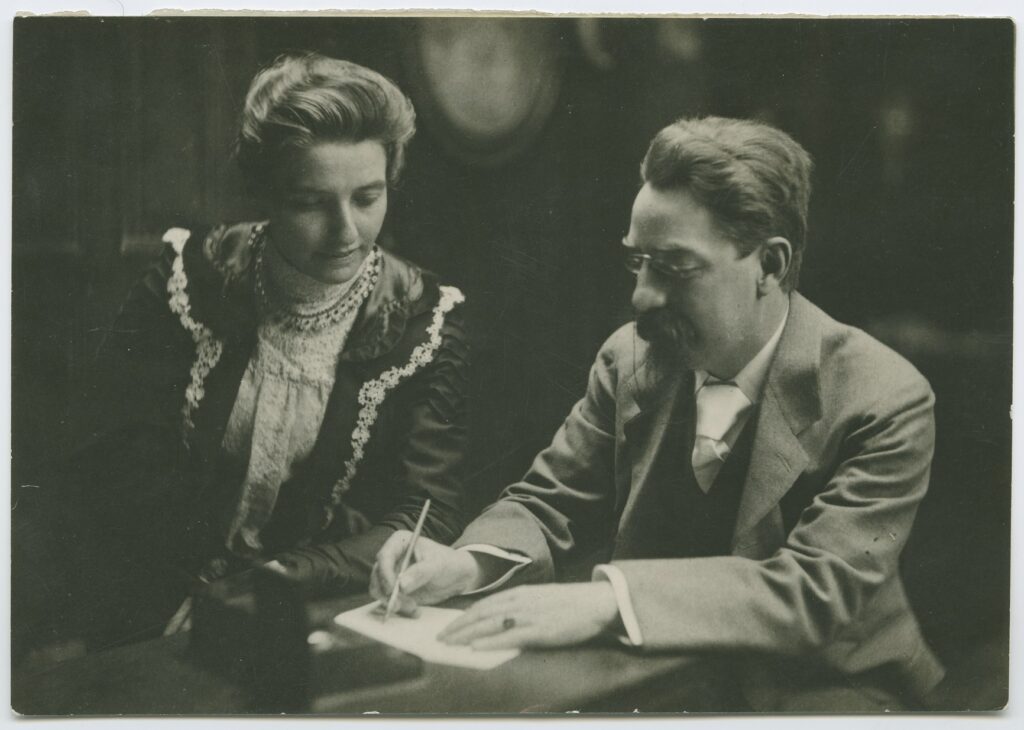
‘Beatrice and Sidney Webb, c1895 (9259293969).jpg’, Unknown, No known copyright restrictions
I am unsure of the exact address, but I am told Sidney and Beatrice Webb either stayed or lived for a time in Meads. While this husband-and-wife team cannot exactly be described as radical, they were notable reformists. Sometimes described as “socialist economists”, they were early members of the Fabian Society, and co-founders of the London School of Economics and Political Science.
Sidney Webb also helped reorganise the University of London into a federation of teaching institutions, and also served in the government as a Labour Party MP. They were pioneers in social and economic reforms as well as distinguished historians, and they deeply affected social thought and institutions in England.
They had a hand in formulating Clause 4 – Labour’s original commitment to ending capitalism and bringing about the socialist transformation of society. Clause 4 recognised that “The people are the real source of wealth”, as Tony Benn put it.
It reads in full:
To secure for the workers by hand or by brain the full fruits of their industry and the most equitable distribution thereof that may be possible upon the basis of the common ownership of the means of production, distribution and exchange, and the best obtainable system of popular administration and control of each industry or service.Pre-1995 Constitution of the Labour Party – Clause 4, part 4.
But the reformist Webbs had little faith in the working classes possessing the right kind of “brain” for the job of working out how to obtain the best system of administration. No. Far too whingy for that.
The “average sensual man” cannot “do much more than describe his grievances, we do not think he can prescribe his remedies… We wish to introduce the professional expert”. Beatrice Webb.
No. Working people were not to be trusted to do management. They were to be set firmly in their place of toiling and labouring and cap doffing to the professional classes!
We saw another example of this sort of class prejudice at the start of this walk with the 1913 Municipal Elections, when 3,000 “extremist” working-class gathered for the announcement of the town’s first working class councillors. And we saw how unjust the lot of the Eastbourne bath chairmen like George Meek was! (details in Radical History Tour).
And onwards the struggle for liberation from the shackles of social oppression continues.